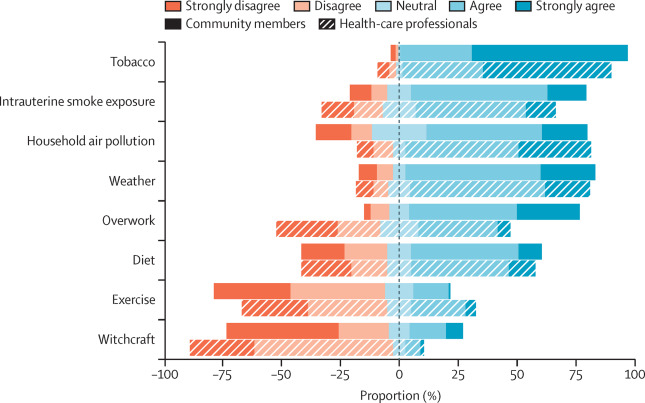Elsevier, The Lancet Global Health, Volume 10, January 2022
Background: Effectiveness of health programmes can be undermined when the implementation misaligns with local beliefs and behaviours. To design context-driven implementation strategies, we explored beliefs and behaviours regarding chronic respiratory disease (CRD) in diverse low-resource settings. Methods: This observational mixed-method study was conducted in Africa (Uganda), Asia (Kyrgyzstan and Vietnam) and Europe (rural Greece and a Roma camp). We systematically mapped beliefs and behaviours using the SETTING-tool.
Elsevier, The Lancet Regional Health - Western Pacific, Volume 18, January 2022
Background: Hepatitis C elimination may be possible with broad uptake of direct-acting antiviral treatments (DAAs). In 2016 the Australian government committed A$1.2 billion for five years of unlimited DAAs (March 2016 to February 2021) in a risk-sharing agreement with pharmaceutical companies. We assess the impact, cost-effectiveness and net economic benefits likely to be realised from this investment.
Elsevier,
Managing Treatment-Resistant Depression: Road to Novel Therapeutics, Volume , 1 January 2022
This content aligns with Goal 3: Good Health and Wellbeing as well as Goal 10: Reducing Inequalities by exploring novel and advanced personalized medicine approaches to tailor depression treatments.
Elsevier,
Neurobiology of Brain Disorders: Biological Basis of Neurological and Psychiatric Disorders, Second Edition, Volume , 1 January 2022
This content aligns with Goal 3: Good Health and Wellbeing and Goal 10: Reduced Inequalities by providing a framework for understanding neurodevelopment, explore the detection and diagnosis of developmental disabilities, describe techniques for investigation of the mechanisms of these disorders, and present principles of management.
Elsevier, The Lancet Public Health, Volume 7, January 2022
The COVID-19 pandemic is unprecedented. The pandemic not only induced a public health crisis, but has led to severe economic, social, and educational crises. Across economies and societies, the distributional consequences of the pandemic have been uneven. Among groups living in vulnerable conditions, the pandemic substantially magnified the inequality gaps, with possible negative implications for these individuals' long-term physical, socioeconomic, and mental wellbeing.
Elsevier,
The Lancet Regional Health - Western Pacific, Volume 18, January 2022
This Comment article supports SDG 3 by highlighting the role and vision of the Pacific School Food Network in fostering healthier school food environments, with the involvement of members from the government, UN agencies, academia, and NGO's representing the areas/sectors of agriculture, biodiversity, education, health, natural resource management, school nutrition and sustainable development.

